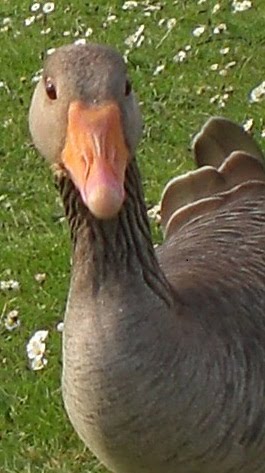This day was part of the Westminster University summer school on Chinese medicine – I noticed they had a day about a particular interest of mine – treating stroke, so I went along.
Key points that came out of the day for me were:
1. I had thought it was
‘normal’ for Claudia Citkovitz to use acupuncture in her treatment of stroke at
a hospital in New York. However, I
picked up that it was special and hard won – so even in the States which
sometimes seems more liberal she still needs to tread carefully. I was struck by Westminster physio /
acupuncturist, Jane Wilson, saying how Claudia had achieved what Jane had
wanted to achieve – giving acupuncture to people post stroke.
I was interested by the mention of not being able to use
moxa in the preliminary information – this wasn’t developed really in the
afternoon; but I did ask a question about it, and was told that it was just not
an option – the constellation of reasons seemed to be around safety (no
smoking, oxygen tanks around) and evidence (lack of it? (as usual...)).
2. Acupuncture (and
tuina) are appropriate once patient stabilised a bit, say from 2 days after the
stroke. I was interested that it isn’t
used immediately, and not sure if that is a protection given that apparently
some strokes continue on through the first week, having more strokes
occurring. There is something around it
being helpful to keep the blood flow (and pressure) up initially – so perhaps
that’s part of it. I’m realising this is
a big subject with already others working here, even if in a restricted way.
3. I was interested
that 2 shiatsu practitioners attended – the one I spoke to seemed very
experienced at working with people post stroke, and has found these clients by
recommendation from other clients, but has only worked privately with them, as
opposed to within orthodox medicine.
any other key thoughts from the day?
I was interested in how focussed it was, and the use of
particular points at various stages. I
was touched by Jane (and Claudia)’s consideration of the real absence of hope
for some people, especially if without support from family and friends .... and
money. But of course on the other side,
it is very exciting what it sounds like acupuncture may do, and presumably this
is what Claudia’s doctorate is about.
somehow, the day didn’t really touch what I had been drawn
to with thinking of shiatsu treatment for people post-stroke – though thinking
about it, perhaps there were things – Jane saying how these treatments could
fill the gap – Stroke people apparently feel their emotional needs are really
not met; and also Jane commented that touch is really important – though done
slowly and carefully since everything can feel quite overwhelming to people
post stroke – almost like seeing things for the first time.
what about you – do you have any knowledge, experience,
views on this kind of work?
all for now,
Catherine.
